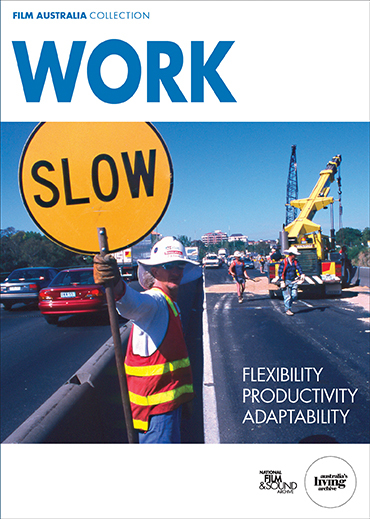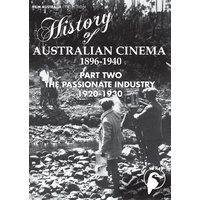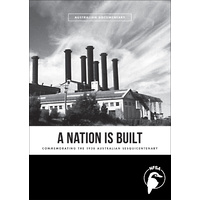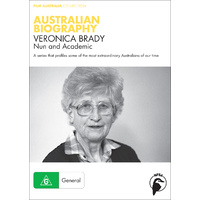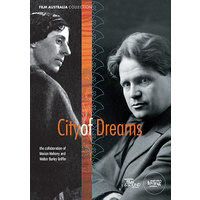1998, 3 x 10 Minutes
The Work series examines how the Australian workplace has been dramatically transformed as a result of the sweeping economic changes of the past decade. Globalisation and the restructuring of Australian industry and business in the 1990s has led to widespread workplace change. These changes range from the decline in manufacturing employment to the introduction of enterprise bargaining as a wage determination system. Australia and its workforce must now compete in a globalised economy that demands more flexibility and greater productivity from workers. Workplace change is analysed in this series of three ten-minute discussion starters. The programs are intended for use in work studies courses in upper-secondary schools, universities and TAFE courses. The series is also useful for government, corporate and union training courses.
Flexibility - The Vanishing Weekend examines the structural and technological changes that are transforming the Australian workplace. To compete in the global economy, Australian industry has been restructured, rationalised, and deregulated. The lowering of tariff barriers and new technology have led to large-scale unemployment. Rapid growth of the service sector has created a new labourforce of casual workers. Enterprise bargaining has replaced the centralised wage-fixing system set up at the turn of the century when Australia was seen as a “workers' paradise”. For many workers there is now no such thing as a traditional weekend or an eight-hour working day. Workers must juggle family life with employers' demands for “flexibility” and increased working hours.
Productivity - Time is Money uses case studies in the health care and clothing industries to explore the drive towards greater productivity and its implications for future employment. Many Australian industries are cutting production costs by shedding jobs and rationalising work practices. Even in public service areas such as welfare, health and education, thousands of jobs have been lost and the pressure is on remaining workers to improve productivity. The resulting unemployment and intensification of work has led to a growing divide between those who are under-employed and those who are over-employed. Now, the very concept of work itself, and the right to work, are under question.
Adaptability - Work in Progress looks at the changing nature of work: contracting and outsourcing, telecommuting and the decline in union membership. It also examines the new industrial relations system of enterprise bargaining and its impact on wage equality and employment conditions. The old model of work was based on the notion of the male breadwinner and men's full-time employment outside the home. Now women make up half the workforce, and men are learning to adapt to different expectations on the home front. For young people entering the workforce today, it is increasingly important to understand the new forms of work available to them, and the needs of the changing workplace.
A Film Australia National Interest Program. © 2011 National Film and Sound Archive of Australia.
(199601500)
Writer/Director: Margot Nash
Year: 1998
Running Time: 30 Minutes (3 x 10 Minutes)
Classification: Exempt from classification
Curriculum Links: Australian Economic History, Business Studies (Business Management/Industry and Enterprise), Economics, SOSE/HSIE (Globalisation), Organisational Management, Work Studies.
| SKU | 199601500 |
| Brand | Film Australia |

